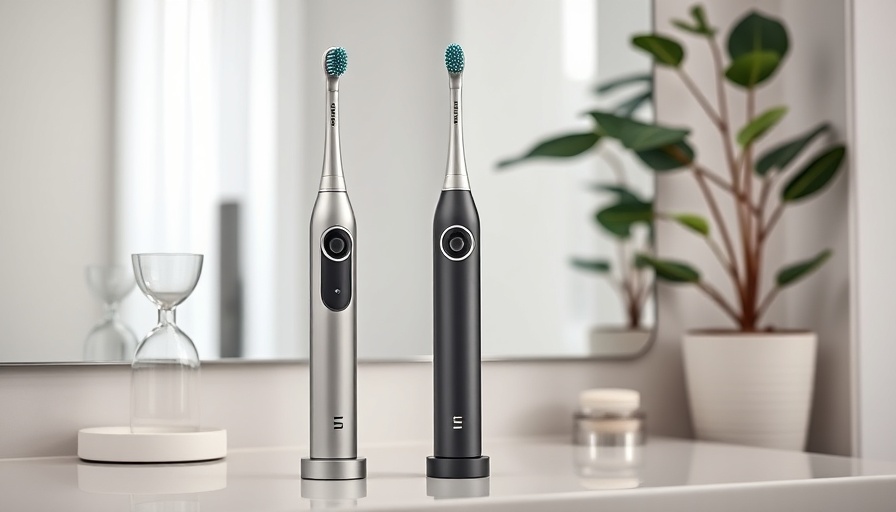
How Long Can You Expect Your Electric Toothbrush to Last?
When investing in an electric toothbrush, understanding its longevity is essential for maintaining optimal oral health. Most electric toothbrushes are designed to last between three to five years, provided they are used and maintained correctly. With a solid grasp of lifespan expectations, consumers can make informed choices that support their ongoing dental care.
What Impacts the Lifespan of Your Toothbrush?
The longevity of an electric toothbrush isn't just about time; it involves various factors that can enhance or decrease its lifespan. Here’s a quick look at what affects durability:
Charging Habits: To extend battery life, experts recommend charging your electric toothbrush only when the battery level drops below 15%. This prevents overcharging and prolongs the health of the battery.
Battery Type: Most electric toothbrushes utilize lithium-ion batteries, which generally offer superior performance compared to older battery types, providing not only longer life but also more reliable power.
Maintenance: Regular cleaning and proper storage are vital. Cleaning the brush head after each use and storing it in a dry area helps prevent bacterial growth and wear.
Manufacturer Guidelines: Familiarizing yourself with the manufacturer's warranty (often around one year) ensures that you can make the most of your toothbrush's lifespan. Following care tips directly from the manufacturer can lead to extended usage.
Recognizing When to Replace Your Electric Toothbrush
Identifying key signs that indicate your electric toothbrush is past its prime is crucial for maintaining dental hygiene. If you notice any of the following symptoms, it might be time to invest in a new toothbrush:
Decreasing Battery Power: If your toothbrush fails to hold a charge as long as it once did, you may need to replace it.
Weak Vibration: Weaker vibrations can mean that the motor is losing its efficiency, a sign that replacement is warranted.
Physical Wear: Cracks or other damages to the handle or charging base can interfere with its performance.
Worn Brush Heads: Remember that brush heads should ideally be replaced every two to three months, as recommended by the American Dental Association. Worn bristles can lead to ineffective cleaning.
The Essential Maintenance Tips You Can’t Ignore
To maximize your electric toothbrush's lifespan, here are some practical tips derived from dental care experts:
Brush Regularly: It's best to brush twice daily; this not only keeps your teeth clean but ensures that the brush is getting consistent use, promoting maintenance strain on the battery.
Store It Right: Always store your toothbrush in a dry place, away from the bathroom counter where it can get damp. This simple act can protect its technology and prevent bacterial growth.
Follow Product Instructions: Each toothbrush may come with specific care instructions. Make sure to adhere to these guidelines, as deviations could lead to early breakdowns.
Future Predictions in Electric Toothbrush Technology
The world of electric toothbrush technology is constantly evolving. Innovations such as advanced sensors that track brushing habits and even apps that connect to help improve dental hygiene practices are becoming more prevalent. As these features become standard, understanding how to care for newer models will lead to better performance and longer life.
Wrapping Up: The Value of Invested Care
Choosing to invest in an electric toothbrush provides more than just a tool for cleaning teeth; it’s an investment in your overall health and well-being. By understanding the longevity factors and going the extra mile in care and maintenance, you can ensure that your toothbrush remains a reliable asset for your oral hygiene routine. Now, with this knowledge, consider checking in on your toothbrush—could it be time for an upgrade?
Act Now: Review your current electric toothbrush situation today and determine if an upgrade is necessary for your healthiest smile possible.
 Add Row
Add Row  Add
Add 




 Add Row
Add Row  Add
Add 

Write A Comment